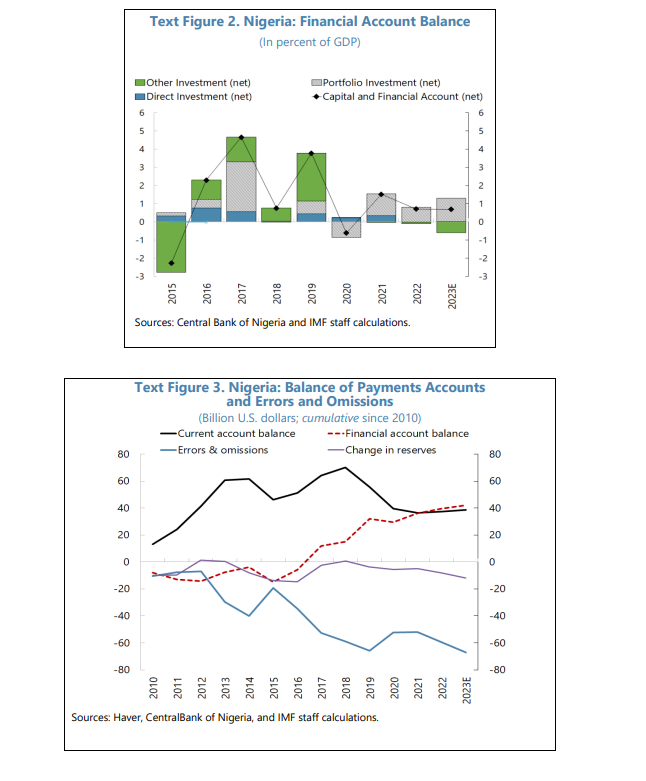nigeria crypto news – In Defiance of SEC, Nigeria’s Crypto Adoption Backed by IMF
Crypto News- In a move aimed at reshaping Nigeria’s economic landscape, the International Monetary Fund (IMF) has advocated for the licensing of global cryptocurrency exchanges within the country. This recommendation, detailed in a recent IMF report, underscores Nigeria’s ambition to solidify its position in the burgeoning African cryptocurrency market.
IMF Urges Stringent Regulation for Crypto Trading Platforms in Nigeria
The report emphasizes the necessity for global crypto trading platforms to be registered or licensed in Nigeria, subject to the same regulatory standards as conventional financial intermediaries. Central to this framework is the enforcement of Anti-Money Laundering and Countering the Financing of Terrorism (AML/CFT) controls, ensuring robust supervision of crypto trading platforms and other virtual asset service providers.
Nigeria’s Crypto Adoption Spurs Balance of Payments Concerns
Highlighting Nigeria’s balance of payments discrepancies, particularly in unrecorded financial transactions, the report attributes these gaps to the increasing adoption of crypto assets for cross-border dealings. With preliminary 2023 data indicating substantial negative net errors and omissions (NEOs), equivalent to approximately $7.5 billion or 2% of Nigeria’s GDP, the IMF sees cryptocurrency regulation as a means to attract international investment and stabilize financial markets.

IMF Backs Crypto Adoption as Solution to Nigeria’s Economic Struggles
Amidst Nigeria’s macroeconomic challenges including currency instability and inflation, the IMF’s endorsement of cryptocurrency adoption signals a strategic response to enhance transactional efficiency and governance over digital financial movements. By formalizing cryptocurrency exchanges, Nigeria aims to curb illegal financial flows, mitigate money laundering risks, and improve remittance mechanisms, vital for the sizable Nigerian diaspora.
However, this regulatory push contrasts with recent measures proposed by Nigeria’s Securities and Exchange Commission (SEC), intending to ban peer-to-peer cryptocurrency exchanges involving the national currency, the naira. According to SEC Director General Emomotimi Agama, this ban seeks to safeguard the naira from potential manipulation and its adverse effects on exchange rates.
Industry Observers Warn of Challenges Amidst Nigeria’s P2P Cryptocurrency Payment Ban
Despite regulatory efforts by Nigeria’s Securities and Exchange Commission (SEC) to ban peer-to-peer (P2P) cryptocurrency transactions involving the national currency, industry observers express apprehension regarding the potential ramifications and complexities within Nigeria’s evolving crypto regulatory environment.
This move, seen as a response to safeguard the naira from perceived manipulation and its adverse impact on exchange rates, raises concerns within the cryptocurrency community about the feasibility and effectiveness of such a prohibition. Critics point to the intricate dynamics of Nigeria’s crypto landscape, highlighting the resilience and adaptability of decentralized peer-to-peer networks.
They emphasize that enforcing a ban on P2P crypto payments presents formidable challenges, given the decentralized nature of cryptocurrencies and the difficulty in regulating peer-to-peer transactions effectively. As Nigeria navigates its regulatory path in the crypto space, stakeholders advocate for nuanced approaches that balance regulatory objectives with the need to foster innovation and financial inclusion in the digital economy.
FAQs
What is crypto in Nigeria and how is it used?
Crypto in Nigeria refers to digital or virtual currencies like Bitcoin, Ethereum, or Ripple. It’s used primarily for investment, remittance, and online transactions.
Is it safe to invest in crypto in Nigeria?
Like any investment, there are risks involved in investing in crypto in Nigeria. It’s important to do thorough research, understand the market, and use reputable platforms for transactions.
How can I trade crypto in Nigeria and which platforms can I use?
You can trade crypto in Nigeria through various cryptocurrency exchanges like Binance, Luno, or Quidax. These platforms allow users to buy, sell, and exchange cryptocurrencies.
How does crypto taxation work in Nigeria?
As of now, there are no specific crypto taxation laws in Nigeria. However, profits from crypto trading may be subject to capital gains tax.
For the latest in crypto updates, keep tabs on Crypto Data Space.















Leave a comment